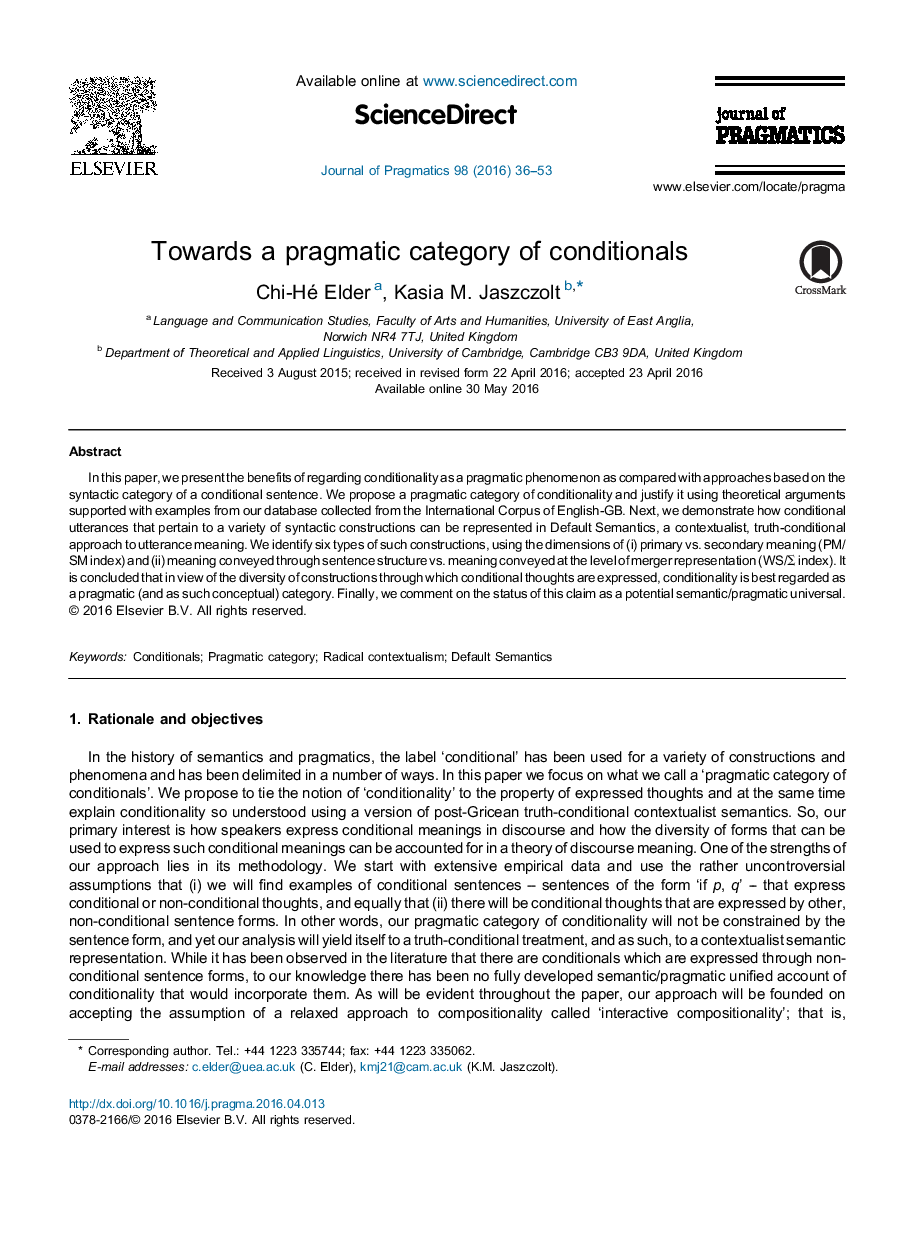| Article ID | Journal | Published Year | Pages | File Type |
|---|---|---|---|---|
| 932488 | Journal of Pragmatics | 2016 | 18 Pages |
•We regard conditionality as a pragmatic phenomenon rather than a syntactic one.•Corpus data provide empirical support for a pragmatic category of conditionals.•Six types of conditional utterance are identified on the basis of both form and meaning.•Explicit and implicit conditionals can be represented using Default Semantics.•Our pragmatic category of conditionals has a claim as a semantic/pragmatic universal.
In this paper, we present the benefits of regarding conditionality as a pragmatic phenomenon as compared with approaches based on the syntactic category of a conditional sentence. We propose a pragmatic category of conditionality and justify it using theoretical arguments supported with examples from our database collected from the International Corpus of English-GB. Next, we demonstrate how conditional utterances that pertain to a variety of syntactic constructions can be represented in Default Semantics, a contextualist, truth-conditional approach to utterance meaning. We identify six types of such constructions, using the dimensions of (i) primary vs. secondary meaning (PM/SM index) and (ii) meaning conveyed through sentence structure vs. meaning conveyed at the level of merger representation (WS/Σ index). It is concluded that in view of the diversity of constructions through which conditional thoughts are expressed, conditionality is best regarded as a pragmatic (and as such conceptual) category. Finally, we comment on the status of this claim as a potential semantic/pragmatic universal.
